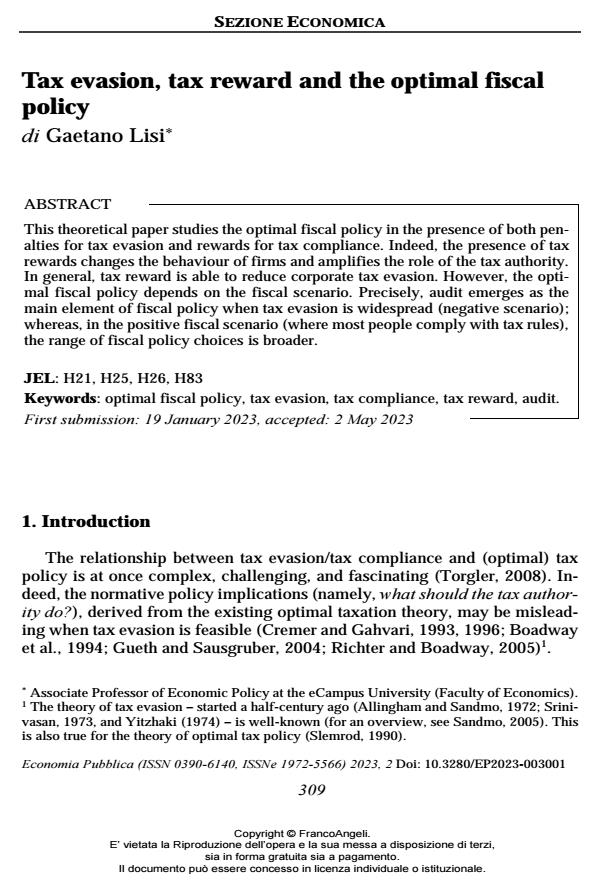Tax evasion, tax reward and the optimal fiscal policy
Titolo Rivista ECONOMIA PUBBLICA
Autori/Curatori Gaetano Lisi
Anno di pubblicazione 2024 Fascicolo 2023/3
Lingua Inglese Numero pagine 19 P. 309-327 Dimensione file 165 KB
DOI 10.3280/EP2023-003001
Il DOI è il codice a barre della proprietà intellettuale: per saperne di più
clicca qui
Qui sotto puoi vedere in anteprima la prima pagina di questo articolo.
Se questo articolo ti interessa, lo puoi acquistare (e scaricare in formato pdf) seguendo le facili indicazioni per acquistare il download credit. Acquista Download Credits per scaricare questo Articolo in formato PDF

FrancoAngeli è membro della Publishers International Linking Association, Inc (PILA), associazione indipendente e non profit per facilitare (attraverso i servizi tecnologici implementati da CrossRef.org) l’accesso degli studiosi ai contenuti digitali nelle pubblicazioni professionali e scientifiche.
This theoretical paper studies the optimal fiscal policy in the presence of both pen- alties for tax evasion and rewards for tax compliance. Indeed, the presence of tax rewards changes the behaviour of firms and amplifies the role of the tax authority. In general, tax reward is able to reduce corporate tax evasion. However, the opti- mal fiscal policy depends on the fiscal scenario. Precisely, audit emerges as the main element of fiscal policy when tax evasion is widespread (negative scenario); whereas, in the positive fiscal scenario (where most people comply with tax rules), the range of fiscal policy choices is broader.
Parole chiave:optimal fiscal policy, tax evasion, tax compliance, tax reward, audit. First submission: 19 January 2023, accepted: 2 May 2023
Jel codes:H21, H25, H26, H83
Gaetano Lisi, Tax evasion, tax reward and the optimal fiscal policy in "ECONOMIA PUBBLICA " 3/2023, pp 309-327, DOI: 10.3280/EP2023-003001